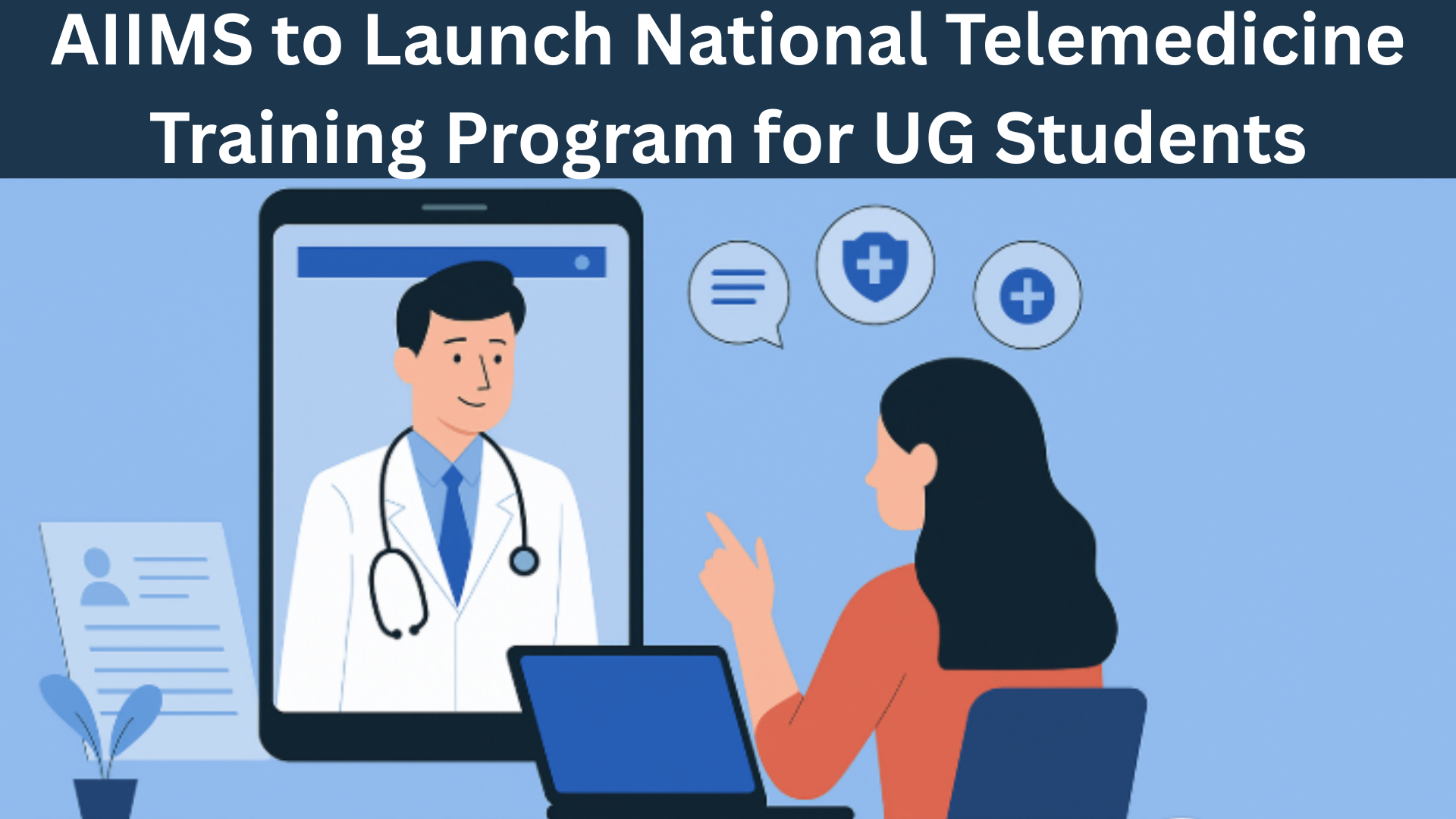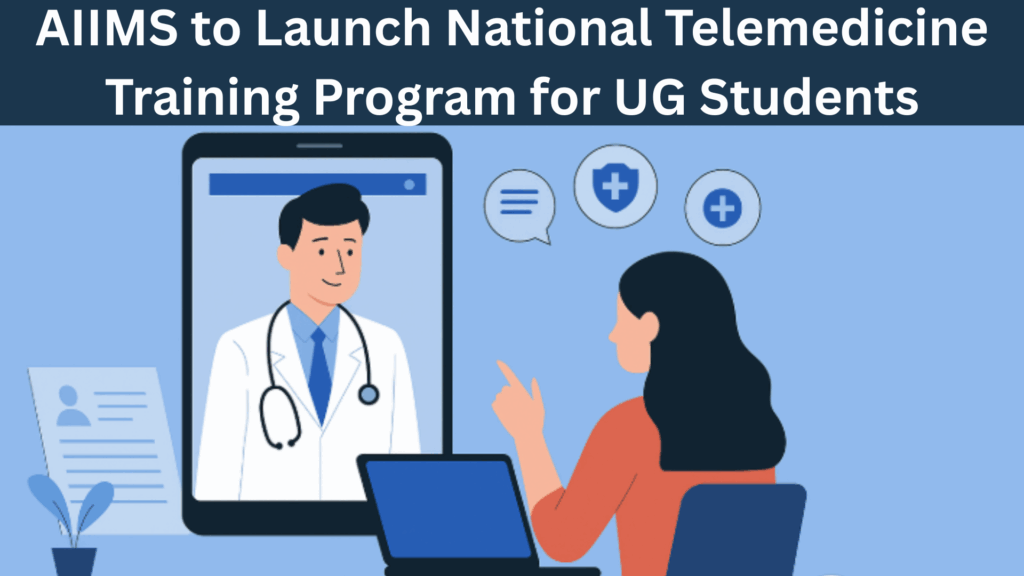In this article, we have discussed in detail the recent announcement of AIIMS to Launch a National Telemedicine Training Program for UG students; read and get duly informed.
AIIMS to Launch National Telemedicine Training Program for UG Students
The All India Institute of Medical Sciences (AIIMS), New Delhi, is set to roll out a National Telemedicine Training Program for undergraduate (UG) medical students across India starting in late 2025. This initiative marks a major shift in how future doctors are trained in digital healthcare delivery, especially in the wake of increasing demand for telehealth services post-COVID-19.
With telemedicine now an integral part of India’s National Digital Health Mission, AIIMS aims to prepare medical graduates for a hybrid model of care that blends physical and virtual consultations effectively and ethically.
What Will the Telemedicine Curriculum Cover?
Students in their clinical years will integrate the program into their MBBS curriculum, adhering to a modular structure. We design the training modules to equip students with proficiency in remote patient interaction, diagnosis, documentation, and decision-making.

Key modules include:
- Introduction to Telemedicine Platforms
- Patient History Taking via Video Calls
- Ethics, Consent, and Data Privacy
- Tele-diagnosis and Triage Principles
- Legal Guidelines and Documentation
- Technology Use: Apps, EHR, and AI tools
Each module will involve a mix of theory, simulation exercises, case-based learning, and interactive video sessions.
AIIMS’ Role and Partnerships
AIIMS will act as the central nodal institution, creating the curriculum in collaboration with
- National Medical Commission (NMC)
- Ministry of Health and Family Welfare
- WHO and other international telehealth advisors
- Software developers and health-tech startups
We will deploy a cloud-based Learning Management System (LMS) to track student progress, administer quizzes, and provide certification upon course completion.
Why Telemedicine Training Is Critical for UG Medical Students
AIIMS’ initiative stems from a growing realization that telemedicine is no longer optional. It is a necessity, especially for:
- Serving rural and remote areas with limited specialists
- Managing non-emergency follow-ups and chronic care
- Reducing the burden on urban hospitals
- Providing faster consultation in emergencies
- Enhancing access for elderly and differently-abled patients
According to government data, over 2 crore teleconsultations were conducted via the eSanjeevani platform in 2024 alone. Yet, most undergraduates graduate with no formal telehealth training—a gap this initiative seeks to bridge.
How Will Students Be Evaluated?
Evaluation under this program will involve both theoretical understanding and skill demonstration. The assessment strategy includes
| Component | Weightage |
|---|---|
| Online quizzes and module tests | 30% |
| Virtual consultation simulation | 40% |
| Peer review and group projects | 20% |
| Final viva and certification | 10% |
The certificate will carry national recognition and may be included as a value-added component in internship assessments.
Future Expansion and State-Level Rollout
AIIMS plans to extend the program to all 700+ medical colleges in India through a phased approach. We are also discussing telemedicine clubs, faculty development workshops, and internship rotations involving live teleconsultations as follow-ups to this foundational course.
States like Karnataka, Maharashtra, and Tamil Nadu—already active in telehealth—are expected to adopt the curriculum early. Private medical colleges may also be onboarded under the Digital Health Alliance.
In conclusion, AIIMS’ telemedicine training program is a timely and transformative step that will empower India’s next generation of doctors to deliver efficient, ethical, and accessible healthcare in the digital age.
Thanks for joining us—your time and attention mean a lot.





